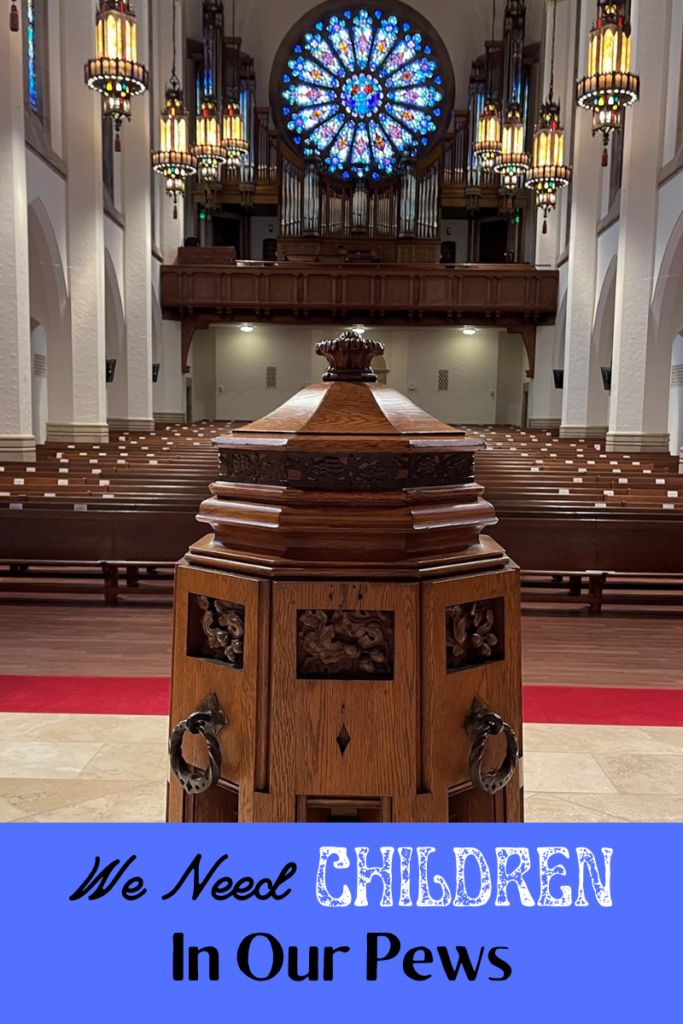
Lisa Witherspoon
Director of Children’s Ministry
“I believe the children are our future. Teach them well and let them lead the way.”
These are the first lines of a song, “Greatest Love of All,” made popular by Whitney Houston in the 1980s. While the song is really about learning to love oneself and is not based on any theological principle or biblical teachings, I think it is still instructive for the church today. The children are, indeed, the future of the church. Therefore, we – all of us – must value them enough to teach them well and let them lead us into the future.
The small-town Presbyterian church I grew up in never had a large congregation, but it was vibrant with members of all ages in the halls and pews on Sunday mornings. Like most mainline churches, however, it has seen its membership decline. Today, that church is literally dying – the steadfast members I remember from my youth are aging and many have already passed away. Sadly, there have been no young families to join the church in, probably, a decade as they have opted for bigger cities and/or bigger churches. With older members dying and no younger members to carry on, I’m honestly not sure what is to become of the church, its building, or its ministries.
I pray this is not indicative of the what the future holds for the church collective. However, it is no secret that more and more young people are leaving churches or not engaging with them to begin with.
 So, what are we to do? I think the solution begins in our pews.
So, what are we to do? I think the solution begins in our pews.
When we baptize children in our sanctuary chancel, we promise to love them and help them (and their parents) to grow in faith. That doesn’t happen when we push them aside and assume that someone else will teach them. It happens when we embrace them – literally and metaphorically. It happens when we INCLUDE them, letting them know they are a valued part of our faith community. It happens when they WANT to be at church because it is a place where they feel loved and cherished.
Some may argue that children can’t understand the hymns or the sermon in a worship service and, therefore, won’t get anything out of it. For young children, however, it is the experience as a whole that matters. They hear the liturgies and become familiar with them. They participate in the rituals and become accustomed to the rhythm of worship. They feel like they are part of something bigger.
Young children certainly don’t understand every detailed rule of baseball, but we still take them to games. They can’t learn every fact about all the animals they encounter at the zoo, but we still make the family field trip. Parents take children to stores and events even though they can’t predict their behavior or completely stave of temper tantrums. We do all these things because we know that children learn through exposure and experience.
Why should worship be any different?
Children will learn to worship, learn to value faith and the church, when they are not only allowed to experience it, but when they are encouraged by and enveloped into it.
I don’t know what will become of the church I grew up in, but I do know that we can create a different story here. It will take all of us embracing the wiggles, giggles, and cries in the pews. It will require some people to shift their perspectives. It will take generations supporting one another and erasing lines of generational separation.
When we write that story together, though, it will be a beautiful one that never says, “The End.”
